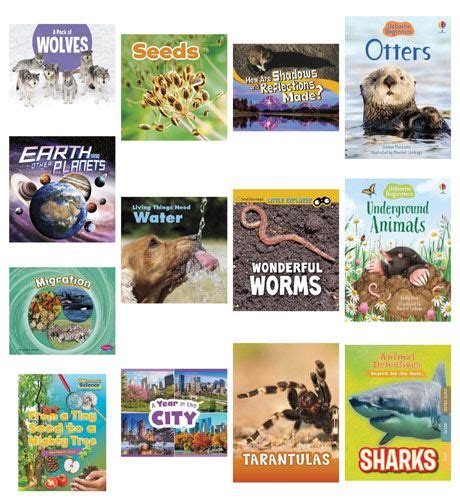Rescuing a dog is a deeply rewarding experience that not only changes the life of an animal in need but also enriches your own. Whether you’re considering adoption for the first time or are a seasoned pet lover, this guide will walk you through the many aspects of rescuing a dog and helping them find their forever home. From understanding the benefits of adopting versus buying to choosing the right rescue organization and preparing your home, we’ll cover it all. Additionally, we’ll explore how to address behavioral issues, share heartwarming success stories, and provide resources for those wanting to make a difference. Together, we can support the rescue community and help more dogs find their forever families.
Dive deep into this topic alongside ugodj.com
1. Why Rescue a Dog? The Benefits of Adopting vs. Buying
Rescuing a dog offers numerous benefits that go beyond just gaining a new companion. Adopting from a shelter or rescue organization helps reduce the number of animals in overcrowded facilities, giving a deserving dog a second chance at life. Many rescue dogs have endured difficult circumstances, and by adopting, you provide them with a loving home and a fresh start.
Adopting is often more affordable than buying from a breeder or pet store, with rescue organizations covering initial medical care, vaccinations, and spaying or neutering. Furthermore, adoption discourages unethical breeding practices, including puppy mills that prioritize profit over the well-being of animals.
Rescue dogs are also known for their gratitude and loyalty, forming strong bonds with their new owners. By choosing adoption, you’re not only transforming a dog’s life but also making a positive impact on the broader animal welfare community, contributing to a more humane and compassionate world.

2. How to Choose the Right Rescue Organization
Choosing the right rescue organization is a crucial step in ensuring a successful adoption experience. Start by researching local shelters, breed-specific rescues, and reputable organizations that align with your values. Look for organizations that have a strong reputation for transparency, responsible animal care, and ethical practices. Reading online reviews and speaking with others who have adopted from these places can offer valuable insight.
A good rescue organization will provide detailed information about the dog’s background, behavior, and health history, ensuring that adopters are fully informed before making a decision. They should have clear adoption policies and be willing to answer all your questions, from the dog’s temperament to post-adoption support.
Additionally, visiting the shelter or rescue in person can give you a sense of how the animals are cared for and the environment they are in. A well-run organization will prioritize the well-being of the dogs, ensuring they are properly socialized and medically cared for.
Ultimately, the right rescue will be one that is committed to matching you with a dog that fits your lifestyle and needs, providing ongoing support to ensure a smooth transition into your home.

3. The Adoption Process: What to Expect
The adoption process may vary slightly depending on the rescue organization, but it generally follows a structured and thoughtful approach to ensure the best match between you and the dog. The first step is usually filling out an application, which includes questions about your lifestyle, experience with pets, and the type of dog you’re looking for. This helps the organization assess whether the dog you’re interested in will be a good fit for your home.
Next, expect a home visit or virtual meeting where a representative will assess the safety and suitability of your living environment for a rescue dog. This step ensures the dog’s needs, such as space and security, are met.
Once approved, you may have the chance to meet and spend time with the dog to ensure compatibility. If both sides are comfortable, the final steps involve signing an adoption contract and paying a small adoption fee, which often covers vaccinations, spaying or neutering, and microchipping.
Finally, some organizations offer post-adoption support, providing resources or guidance to help you and your new dog adjust smoothly to life together.

4. Preparing Your Home for a Rescue Dog
Bringing a rescue dog into your home requires thoughtful preparation to ensure a smooth transition and a comfortable environment for your new pet. Start by designating a safe, quiet space where your dog can relax and adjust to its new surroundings. This can be a cozy corner with a dog bed, blanket, and some toys. Having a crate can also help, as many dogs find comfort in a confined space, especially during the initial adjustment period.
Ensure your home is pet-proofed by removing any hazards such as toxic plants, exposed electrical cords, or small items that could be swallowed. Secure gates or doors to prevent your dog from wandering off, and consider installing childproof locks on cabinets containing food or cleaning supplies.
Stock up on essential supplies like food, water bowls, a leash, collar, and ID tags. It’s also helpful to have grooming tools and cleaning supplies on hand, as some rescue dogs may need extra care when they first arrive.
Lastly, prepare family members and other pets for the new addition by discussing responsibilities and setting clear boundaries. Introducing a rescue dog to its new home takes patience, but with proper preparation, you’ll help create a welcoming and loving space for them to thrive.
5. Understanding and Addressing Behavioral Issues in Rescue Dogs
Rescue dogs may come from various backgrounds, and some may have experienced trauma or neglect, leading to behavioral issues. It’s important to approach these challenges with patience, understanding, and consistency. Common issues in rescue dogs can include anxiety, fearfulness, aggression, or difficulty adjusting to a new environment. These behaviors are often a result of past experiences and can be overcome with the right approach.
Start by giving your dog time to settle into their new home. Establish a routine, as dogs thrive on predictability, which can help ease anxiety. Avoid overwhelming them with too much attention or new experiences at once.
Positive reinforcement is key when addressing behavioral problems. Rewarding good behavior with treats, praise, or affection helps build trust and reinforces desired actions. If your dog exhibits signs of aggression or fear, avoid punishment, as this can exacerbate the issue. Instead, calmly redirect their attention and reinforce positive interactions.
Professional help, such as working with a dog trainer or behaviorist, can be invaluable in addressing more severe behavioral issues. Many rescue organizations offer support or can recommend professionals who specialize in helping rescue dogs adjust to their new lives.
Above all, remember that progress may take time. With patience, consistency, and love, most behavioral issues in rescue dogs can be addressed, leading to a happy and well-adjusted companion.
6. Top Online Resources and Communities for Dog Rescue
There are many online resources and communities dedicated to helping rescue dogs and their adopters, offering support, advice, and connections with other dog lovers. These platforms provide essential tools for navigating the adoption process, finding reputable rescue organizations, and learning how to care for a rescue dog.
Petfinder is one of the largest online databases for adoptable pets, connecting potential adopters with rescue groups and shelters across the country. You can search by breed, location, and other criteria to find the perfect dog for your home.
The American Society for the Prevention of Cruelty to Animals (ASPCA) offers extensive resources on adoption, including guides on caring for rescue dogs, understanding behavior, and the steps involved in the adoption process. Their site also features success stories to inspire future adopters.
Facebook groups and Reddit communities, such as the “Rescue Dogs” subreddit, allow adopters to connect, share experiences, and seek advice from a supportive community. These platforms can be especially helpful when dealing with challenges like behavioral issues or seeking recommendations for trainers and veterinarians.
Additionally, many rescue organizations have their own websites and social media pages where they share available dogs, adoption events, and helpful resources, making it easier to stay informed and involved in the rescue community.
7. Inspiring Success Stories of Rescue Dogs
Inspiring success stories of rescue dogs showcase the transformative power of adoption and the deep bonds that can form between dogs and their new families. One heartwarming tale is of Max, a once-abandoned Labrador mix found wandering the streets. After being rescued, he was adopted by a family who worked tirelessly to help him overcome his fear of people. With love and patience, Max blossomed into a confident and affectionate companion, even earning the title of “Canine Good Citizen” after completing obedience training.
Another touching story is that of Bella, a pit bull who had been neglected and mistreated. Her new owners recognized her potential and provided a safe space for her to heal. With consistent training and positive reinforcement, Bella learned to trust again and now participates in therapy dog programs, bringing joy to children in hospitals and schools.
These stories illustrate that every rescue dog has the potential for a bright future, often overcoming significant challenges along the way. By sharing these inspiring journeys, we can encourage others to consider adoption, highlighting that love and dedication can transform the lives of both dogs and their humans. Each success story is a reminder that every rescue dog deserves a chance at happiness in a loving forever home.
8. How to Support Dog Rescue Efforts Beyond Adoption
Supporting dog rescue efforts goes beyond simply adopting a pet; there are many ways to make a positive impact in your community. One effective method is to volunteer your time at local shelters or rescue organizations. This could involve walking dogs, helping with administrative tasks, or fostering dogs in need of temporary homes.
Donating supplies such as food, toys, and bedding can also significantly aid rescue groups, as many operate on tight budgets. Financial contributions are equally important, as they help cover veterinary care, transportation, and other essential expenses for rescued animals.
Spreading awareness through social media can amplify the message of rescue organizations, encouraging others to adopt or donate. Attend fundraising events and participate in community outreach programs to further support local rescue efforts.
Lastly, advocating for responsible pet ownership and spaying or neutering can help reduce the number of homeless animals in your area. By engaging in these activities, you contribute to a compassionate movement that helps dogs find their forever homes and promotes a better future for all animals.
Rescuing a dog is a profound and rewarding experience that not only transforms the life of the animal but also enriches your own. By understanding the adoption process, preparing your home, and addressing potential behavioral issues, you set the stage for a successful relationship with your new furry friend. Utilizing online resources, sharing inspiring success stories, and supporting rescue efforts can further enhance your impact in the dog rescue community. Together, we can create a brighter future for rescue dogs, ensuring they find loving homes and the chance to thrive in a nurturing environment.
ugodj.com

